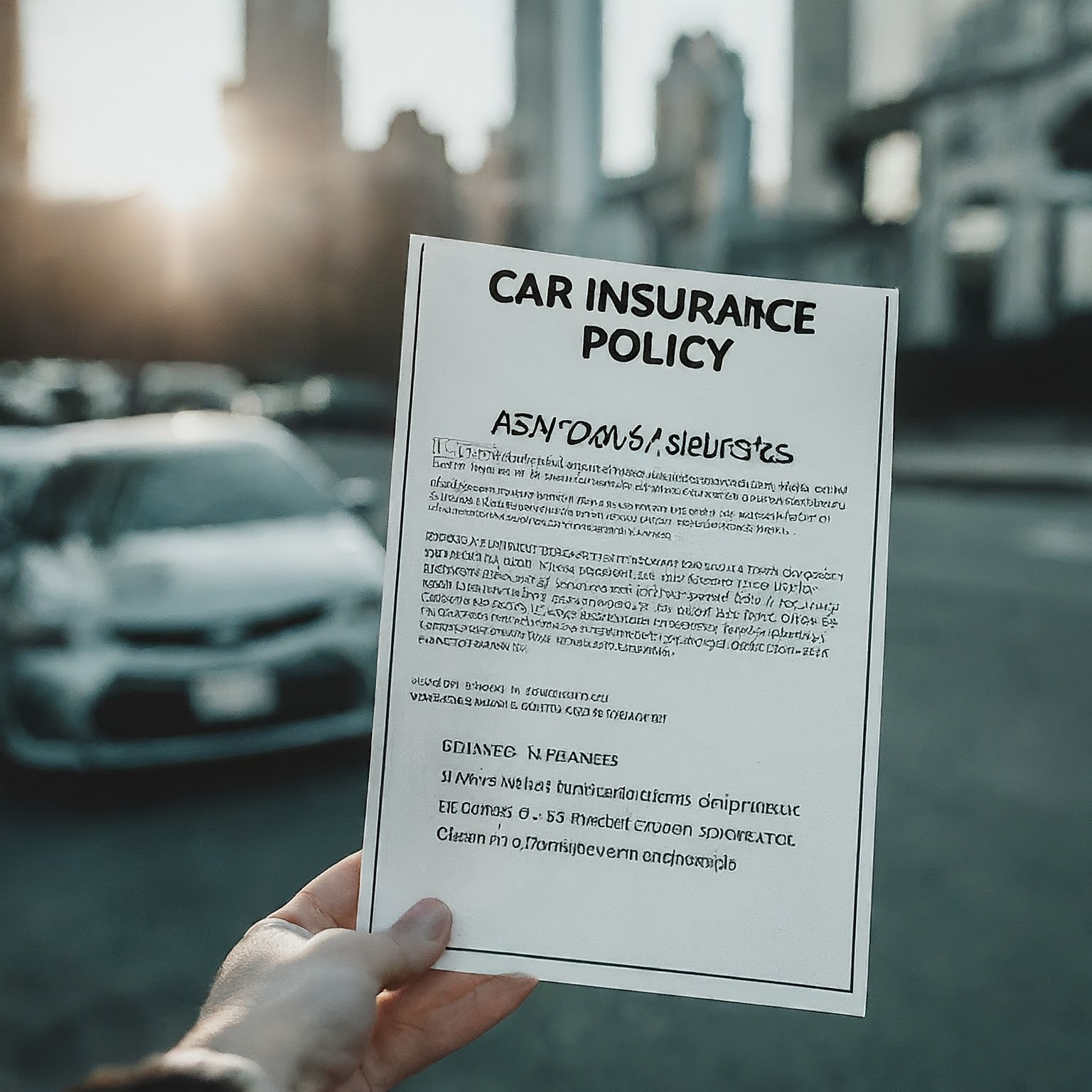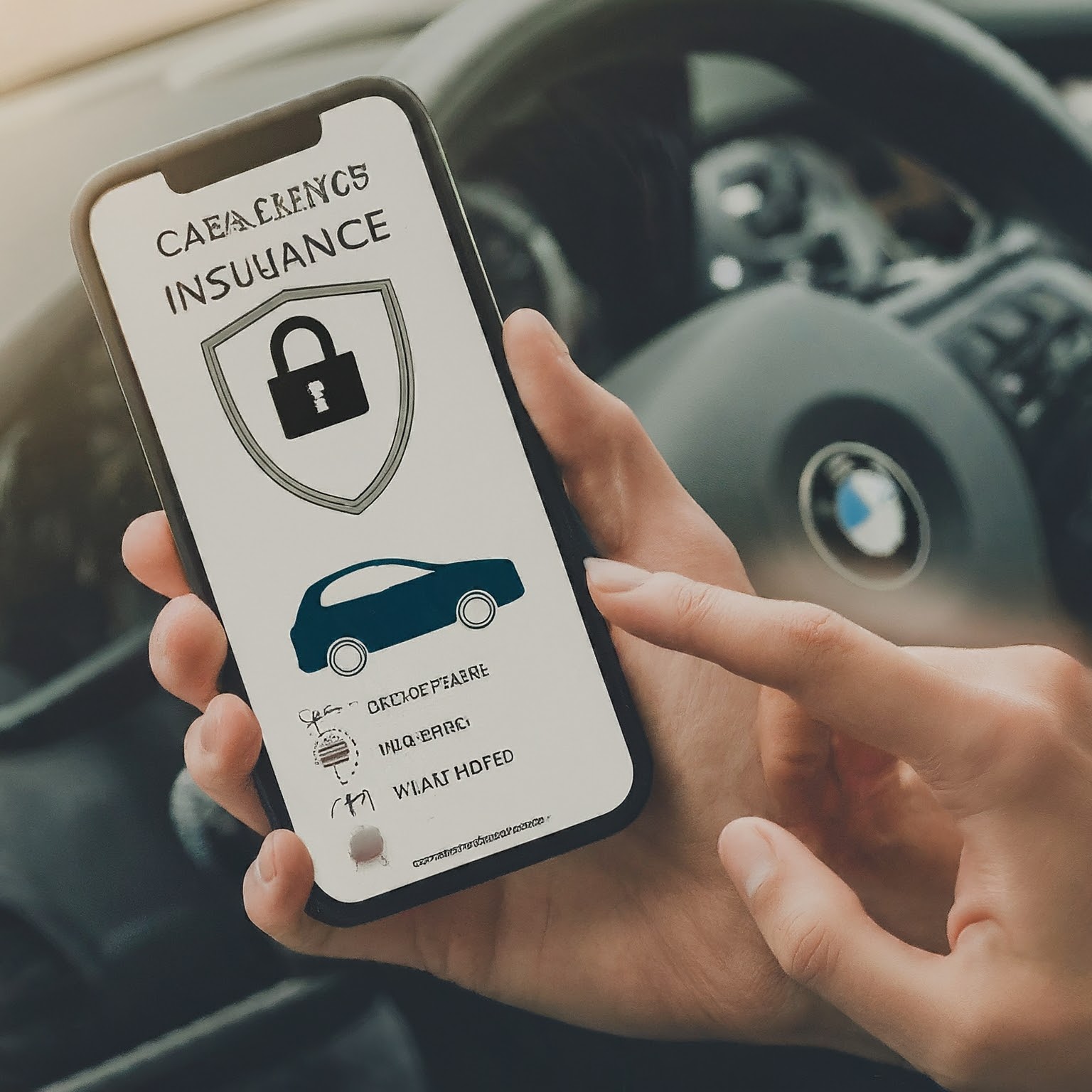Introduction
Car insurance is a contract between you and an insurance company that protects you against financial loss in the event of an accident or theft. In exchange for paying a premium, the insurance company agrees to pay your losses as outlined in your policy. Car insurance provides coverage for:
- Property – such as damage to or theft of your car
- Liability – your legal responsibility to others for bodily injury or property damage
- Medical – the cost of treating injuries, rehabilitation and sometimes lost wages and funeral expenses
Securing car insurance is not only a prudent financial decision but often a legal requirement. Driving without insurance can result in fines, license suspension, and even impoundment of your vehicle.
Finding the best car insurance deals is crucial. Not only does it allow you to make savings, but it also ensures that you don’t have to compromise on the quality of your coverage. With the right deal, you gain peace of mind knowing that you’re well-protected from potential hazards while driving.
Equally important is making sure that your chosen insurance policy fits your unique needs. This process involves considering various factors like the type of vehicle you drive and your driving habits. Additionally, you want to ensure that the policy fits within your budget constraints.
By striking a balance between cost-effectiveness and comprehensive coverage, you’re on the right path. This approach promotes both financial security and responsible car ownership.

Understanding Car Insurance
Car insurance is a contract between you and an insurance company, designed to protect you against financial loss in the event of an accident or theft. In exchange for your paying a premium, the insurance company agrees to pay your losses as outlined in your policy.
Different types of car insurance coverage cater to different needs. The three most common types include:
- Liability coverage: This covers the costs associated with injuries and property damage you are responsible for if you cause an accident.
- Comprehensive coverage: This pays for damage to your car caused by events that aren’t related to collisions, such as fire, theft, and natural disasters.
- Collision coverage: As the name suggests, this covers damage to your car resulting from a collision with another vehicle or object.
When it comes to determining car insurance rates, insurers consider several key factors:
- Driver’s age: Young drivers usually face higher rates as they’re considered high-risk due to their lack of driving experience.
- Location: Urban areas with higher rates of accidents and theft often have higher premiums.
- Vehicle make and model: High-end cars are more expensive to repair or replace, leading to higher premiums.
Understanding these elements can empower you when searching for an optimal car insurance plan that balances cost and coverage.

The Importance of Finding the Best Car Insurance Deals
Searching for car insurance requires a delicate balance between cost and coverage. Opting for the cheapest option might initially seem appealing. However, this could result in significant out-of-pocket expenses if an accident happens.
On the other hand, selecting a policy that provides robust protection is a wise investment. This isn’t just about securing your vehicle—it’s about your financial security as well.
Finding the best car insurance deal is more than just looking at the price tag. Here are some reasons why:
Adequate Coverage
Ensuring you have sufficient coverage protects you from significant financial losses in case of an accident or theft. It’s essential to have a policy that covers the costs of potential damage, not just to your vehicle but also to others’ property or health.
Long-Term Savings
While a lower premium may seem attractive initially, inadequate coverage can be far more costly in the long run. By thoroughly comparing policies, you can find one that offers both reasonable premiums and comprehensive protection.
Financial Security
A good car insurance deal contributes to your overall financial stability. In the event of unforeseen incidents, well-chosen coverage helps prevent depleting savings or going into debt to cover repair bills and medical expenses.
Remember, investing time in shopping around for car insurance quotes can yield significant savings—potentially hundreds of dollars annually on your premiums without compromising on necessary protections.

1. Utilizing Online Resources for Car Insurance Quotes
In the digital era, getting car insurance quotes online has become an increasingly popular method. Many websites offer comparison tools, allowing you to sit back and let technology do the heavy lifting. These platforms bring together quotes from multiple insurance providers, helping you identify the best car insurance deals quickly and efficiently.
Top Car Insurance Comparison Tools in the Market
Let’s dive into some of the best car insurance comparison tools that stand out in today’s market:
Insurify
Insurify offers a user-friendly interface that makes it simple to compare quotes from various insurance providers. The platform allows you to customize your coverage options, ensuring the quotes you receive align with your needs. Check out Insurify here.
The Zebra
Recognized for its comprehensive coverage of insurers, The Zebra provides an extensive range of quotes. This tool empowers you with the ability to filter based on different variables, such as coverage level and deductible amount. Explore The Zebra here.
Compare.com
Compare.com boasts a broad network of insurance providers. Its platform provides a detailed breakdown of each quote, making it easier for you to understand what’s included in your potential policy. Browse Compare.com here.
Remember, these are affiliate links which means we may earn a commission if you decide to use these services.
By leveraging these resources, you can efficiently sift through numerous quotes without having to visit each insurer’s website individually. This approach saves not only time but also helps ensure that your decision is well-informed.
The Limitations of Online Comparison Tools
Comparison tools offer a glimpse into what various insurers propose, enabling a simultaneous evaluation of different policies. However, keep in mind that these online quotes should be an initial step in your investigation. It’s crucial to follow up with the insurance provider for a more comprehensive quote and to discuss your unique coverage requirements.
Furthermore, while these comparison instruments are extremely beneficial, they may not encompass every insurance provider out there. Some insurers choose not to participate in these platforms, implying that you might have to reach out to them directly for a quote. This includes some larger, renowned companies, so don’t overlook this phase in your pursuit of the best car insurance deals.
Additional Resources
Consider visiting the Florida Department of Financial Services and Consumer Reports’ Car Insurance Buying Guide for additional educational resources on car insurance. These sites provide valuable information on key factors and must-know topics to help make an informed choice on car insurance.
Using MakeThatBenjie.com to Compare Car Insurance Quotes
Sourcing car insurance quotes online has become a preferred method for savvy drivers, ensuring they receive the most comprehensive coverage at the best price. MakeThatBenjie.com is a standout among car insurance comparison tools due to its user-friendly interface, accurate results, and trustworthiness.
Here’s how you can harness the power of MakeThatBenjie.com:
- Start by accessing the website: Navigate to MakeThatBenjie.com in your web browser.
- Enter your information: The tool will ask for basic details like your vehicle type, driving history, and location. Accuracy is important here – the more precise you are with your inputs, the more accurate your quoted rates will be.
- Compare quotes: Once you’ve inputted your details, MakeThatBenjie.com will generate a list of quotes from various providers. You’ll have a clear view of what each insurer offers and their corresponding prices.
- Choose your preferred quote: After comparing your options, select the quote that best suits your needs and budget.
Not only does this method save time by gathering multiple quotes in one go, but it also simplifies the decision-making process by presenting rates and coverage side by side.
MakeThatBenjie.com is an excellent resource in your quest for optimal car insurance coverage. Its simplicity and reliable results make it a go-to tool for many users seeking competitive car insurance quotes online.

2. Considering Coverage Options and Deductibles
When it comes to car insurance, understanding your coverage options and how deductibles work is crucial. Car insurance coverage refers to the different types of protection offered by an insurance policy. These can range from liability coverage (which covers damage you cause to others), to comprehensive coverage (which covers damage to your own car from non-crash related incidents).
Choosing the Right Coverage
Selecting the right level of coverage depends on your specific needs and circumstances. Here are some factors to consider:
- Vehicle type and value: If you have a new or expensive car, opting for comprehensive and collision coverage could be a wise decision. On the other hand, if your vehicle is old or has a low market value, paying for such extensive coverage might not be cost-effective.
- Budget: Determine how much you can comfortably afford to pay for insurance premiums each month.
- State requirements: Familiarize yourself with the minimum car insurance requirements in your state.
Understanding Deductibles
Deductibles, on the other hand, are the amount you’re responsible for paying out-of-pocket before your insurance kicks in. It’s a balancing act: higher deductibles mean lower premiums, but more cost to you if an accident occurs; lower deductibles mean higher premiums, but less out-of-pocket expense when filing a claim.
When choosing a deductible, keep these considerations in mind:
- Evaluate your financial situation: Can you afford to pay a higher deductible out of pocket if an accident occurs?
- Assess your risk level: How likely are you to file a claim? Consider factors such as driving habits and where you live.
- Consider your vehicle’s value: If your car is older or has a low market value, it may not make sense to choose a low deductible.
Your goal should be to strike a balance between affordable premiums and manageable out-of-pocket costs in case of an accident. Remember that while cost is certainly important when selecting car insurance coverage and deductibles, it should not be the only factor considered. Adequate protection should always be the priority.

3. Taking Advantage of Discounts and Savings Opportunities
Tapping into discounts on car insurance premiums is a smart move for any driver. Insurance companies offer various cost-saving strategies that can significantly reduce your annual expenses. Here’s a closer look at some common discounts and tips on how to secure them:
Types of Car Insurance Discounts
- Multi-policy Discount: Bundle your auto insurance with other policies, such as homeowners or renters insurance, to get a reduced rate.
- Good Driver Discount: Maintain a clean driving record with no accidents or violations to qualify for lower premiums.
- Student Discount: If you’re a full-time student with good grades, you might be eligible for discounted rates.
Tips for Qualifying for Discounts
- Stay Informed: Check your insurer’s website or speak to an agent about available discounts.
- Monitor Your Driving Habits: Use telematics devices if offered by your insurer; safe driving data can lead to discounts.
- Academic Excellence: For students, aim to keep your grades up as many insurers offer discounts for academic achievement.
- Defensive Driving Courses: Completing an approved course may not only improve driving skills but also reduce rates.
By exploring these options and maintaining eligibility, you can effectively lower your car insurance premiums and enjoy substantial savings over time.

4. How to Maintain a Good Driving Record and Save on Car Insurance
Your driving record is an important factor that insurance companies consider when determining your rates. It reflects your behavior behind the wheel and a clean record indicates that you are a lower risk to insure. Here are some tips on how to maintain a good driving record and potentially save on your car insurance:
Why Your Driving Record Matters
A good driving record directly influences your insurance rates because it shows insurers that you are a responsible driver. By avoiding accidents and traffic violations, you demonstrate that you are less likely to file a claim in the future. This is why insurance companies often reward drivers with clean records with lower premiums.
Tips for Maintaining a Good Driving Record
Here are some actions you can take to keep your driving record clean:
- Drive safely and avoid accidents: Each year without an accident can qualify you for safe driving bonuses or discounts from your insurer.
- Follow traffic laws: Be mindful of speed limits, traffic signals, and other rules of the road to avoid getting tickets or citations.
- Take a defensive driving course: Completing an approved driver safety course may not only improve your skills but also make you eligible for discounts with some insurance providers.
The Benefits of a Good Driving Record
Having a good driving record can lead to significant savings on your car insurance over time. Insurance companies typically review your driving history when you renew your policy, looking for any changes that could affect your risk level. By maintaining a clean record, you demonstrate responsibility, which can translate into lower premiums.
Understanding How Insurers Evaluate Driving Records
Understanding Insurers’ Evaluation Criteria It’s essential to comprehend that every insurance company has its individual standards for assessing a driving history. While one firm might disregard a minor speeding violation after a specific period, another may contemplate it for an extended time.
Strategies to Improve Your Record To ensure that you’re securing the best rates possible, always verify with your provider about their assessment of driving records. Discuss what measures you can implement to enhance it.
Drive Safe, Save Money
By staying vigilant on the road not only for your safety but also for the sake of your wallet, you can enjoy financial benefits when it comes to your car insurance. Remember, being a safer driver doesn’t just protect you and others on the road – it can also help you save money on your premiums.

5. The Role of Credit Score in Car Insurance
Your credit score can play a significant role in determining your car insurance rates. This might sound surprising, but it’s all part of how insurance companies assess risk. They use credit-based insurance scores to predict the likelihood of an insurance claim in the future.
A higher credit score typically results in lower premium prices. This is because individuals with high credit scores are often deemed more responsible and less likely to take unnecessary risks. They are, therefore, considered lower risk by insurance companies.
Now, you might be wondering: “How can I improve my credit score to get better car insurance deals?” Here are a few strategies:
- Pay bills on time: Late payments can negatively impact your credit score. Consistently paying your bills on time can help improve your score over time.
- Reduce debt: The amount of debt you owe compared to your overall credit limit—also known as your credit utilization ratio—can affect your credit score. Aim to keep this ratio as low as possible.
- Don’t close old accounts: Length of credit history contributes to your credit score. Keeping old accounts open, even if you don’t use them often, can benefit your score.
- Limit hard inquiries: Each time a lender or business checks your credit report, it can lower your score. Limit these “hard” inquiries whenever possible.
Remember that improving your credit score isn’t an overnight process—it requires consistent effort over time. But the potential savings on your car insurance premiums make it well worth the effort.

Reviewing Policy Terms and Conditions for Comprehensive Coverage
Car insurance policies can vary widely, not only in price but also in what they cover. Understanding the details is vital to choosing the right policy. Here’s why:
Why You Should Review Your Car Insurance Policy
1. Know Your Coverage
Insurance policies are filled with terminology that can be confusing. Having a solid grasp of the terms used, such as ‘deductible’, ‘premium’, ‘liability’, and ‘comprehensive coverage’, will allow you to better understand what you’re purchasing. This knowledge could be the difference between financial stability and a hefty bill in the event of an accident.
2. Avoid Unnecessary Costs
By thoroughly reviewing your policy documents, you can ensure that you’re not paying for coverage that isn’t necessary for your situation. For instance, if you’re driving an old car, it may not be worth it to have collision or comprehensive coverage.
3. Catch Potential Limitations
It’s also crucial to read the fine print for any limitations on your coverage. Some policies might have specific exclusions or conditions that could leave you without coverage when you need it most.
The Importance of Reviewing Your Car Insurance Policy
A careful review of your insurance policy documents can help protect your financial security and give you peace of mind on the road. Ensure that you fully understand every aspect of your policy, and don’t hesitate to ask your insurer if there’s anything unclear.

Conclusion
Navigating the world of car insurance can be a complex task. However, with the right tools and knowledge, it’s possible to secure the best deals without compromising on coverage quality.
In the digital era, platforms like MakeThatBenjie.com have emerged as valuable resources. They allow you to easily compare car insurance quotes, ensuring that your decisions about insurance are well-informed. Harnessing these online resources can lead to substantial savings and provide the peace of mind that comes with reliable protection while on the road.
For those who wish to delve deeper into the subject, additional insights and articles on Car Insurance are available at Automoblog. This can be a valuable supplement to your research, providing you with a broader understanding of car insurance options.
Remember, it’s not solely about finding the lowest price—it’s about understanding what you’re paying for and how it serves your individual circumstances. Smart insurance shopping combines cost-effectiveness with comprehensive coverage, ensuring that when life takes an unexpected turn, you’re well-prepared to navigate it. Use these resources to take control of your car insurance expenses and drive with confidence.
